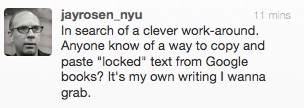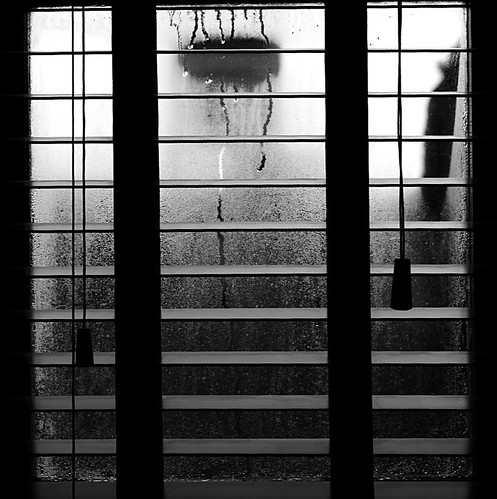One of the chapters in my new book (out on Thursday next though Amazon seems to be already selling the Kindle edition) is about the potential of computing and network technology to create systems for perfect surveillance and control. I’ve argued that the threat comes from two directions: one is the Orwellian one that we all know about; the other comes from companies like Apple and Google and Facebook. In both cases the connivance — tacit or active – of democratic governments is required. This anguished piece by Thom Holwerda suggests that the penny has dropped for him.
Here we are, at the start of 2012. Obama signed the NDAA for 2012, making it possible for American citizens to be detained indefinitely without any form of trial or due process, only because they are terrorist suspects. At the same time, we have SOPA, which, if passed, would enact a system in which websites can be taken off the web, again without any form of trial or due process, while also enabling the monitoring of internet traffic. Combine this with how the authorities labelled the Occupy movements – namely, as terrorists – and you can see where this is going.
In case all this reminds you of China and similarly totalitarian regimes, you're not alone. Even the Motion Picture Association of America, the MPAA, proudly proclaims that what works for China, Syria, Iran, and others, should work for the US. China's Great Firewall and similar filtering systems are glorified as workable solutions in what is supposed to be the free world.
The crux of the matter here is that unlike the days of yore, where repressive regimes needed elaborate networks of secret police and informants to monitor communication, all they need now is control over the software and hardware we use. Our desktops, laptops, tablets, smartphones, and all manner of devices play a role in virtually all of our communication. Think you’re in the clear when communicating face-to-face? Think again. How did you arrange the meet-up? Over the phone? The web? And what do you have in your pocket or bag, always connected to the network?
This is what [Richard] Stallman has been warning us about all these years – and most of us, including myself, never really took him seriously. However, as the world changes, the importance of the ability to check what the code in your devices is doing – by someone else in case you lack the skills – becomes increasingly apparent. If we lose the ability to check what our own computers are doing, we’re boned.
Thom also points to Cory Doctorow’s chilling talk at the Chaos Computer Congress in Berlin, entitled “The coming war on general computation,” which sets things out pretty clearly.
(Transcript here for those who are too busy to watch all the way through.)
One of the most depressing things now is the discovery that Obama seems not just clueless and passive about this stuff, but that — when push comes to shove — he really sides with the forces of darkness. If SOPA ever makes it through Congress, for example, my guess is that he will sign it. After all, as Thom points out, he signed the NDAA 2012.







